Search
Remove Ads
Advertisement
Summary 
Loading AI-generated summary based on World History Encyclopedia articles ...
Search Results
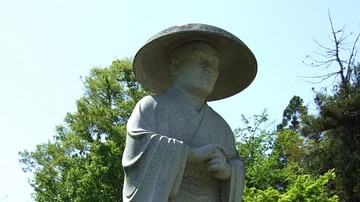
Definition
Ennin
Ennin (c. 793-864 CE, posthumous title: Jikaku Daishi) was a Japanese Buddhist monk of the Tendai sect who studied Buddhism at length in China and brought back knowledge of esoteric rituals, sutras, and relics. On his return, he published...

Image
Ennin
A modern statue of the Japanese Buddhist monk Ennin (c. 793-864 CE). Yenin Yu, Japan.
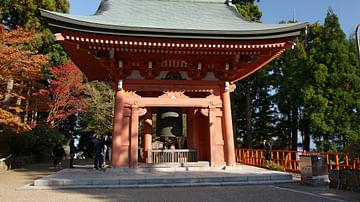
Definition
Enryakuji
The Enryakuji is a Buddhist monastic complex on the sacred Mt. Hiei, near Kyoto, Japan. The site was selected by the monk Saicho to become the headquarters of the Tendai sect, which he founded in Japan in the early 9th century CE. Enryakuji...
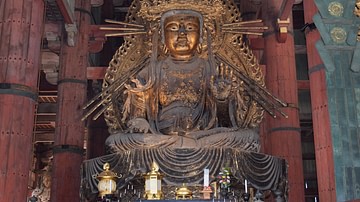
Article
Buddhism in Ancient Japan
Buddhism was introduced to ancient Japan via Korea in the 6th century CE with various sects following in subsequent centuries via China. It was readily accepted by both the elite and ordinary populace because it confirmed the political and...

Definition
Buddhism
Buddhism is a non-theistic religion (no belief in a creator god), also considered a philosophy and a moral discipline, originating in the region of modern-day India in the 6th and 5th centuries BCE. It was founded by the sage Siddhartha Gautama...
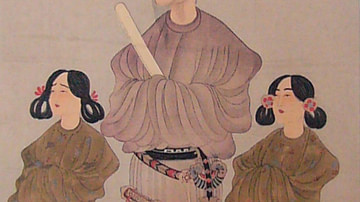
Definition
Prince Shotoku
Prince Shotoku (574-622 CE) ruled as regent of Japan from 594 to 622 CE and is one of the most celebrated figures in all of Japanese history. The prince was a great supporter of Chinese culture and Buddhism, spreading both during his reign...
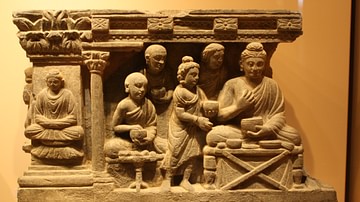
Article
A Short History of the Buddhist Schools
The different Buddhist schools of thought, still operating in the present day, developed after the death of the Buddha (l. c. 563 - c. 483 BCE) in an effort to perpetuate his teachings and honor his example. Each of the schools claimed to...
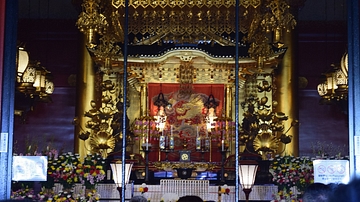
Image
High Altar at Sensoji Temple
This is a picture of the high altar at Sensoji Temple in Tokyo, Japan, which is protected by a screen. In 645 CE, the renowned Buddhist priest Shokai visited Tokyo and built a hall for the worship of the Bodhisattva Kannon. (Many thus attribute...

Definition
Jang Bogo
Jang Bogo (aka Chang Pogo or Gungbok) was a powerful Korean warlord, naval commander, and merchant who came to monopolise maritime trade in northeast Asia to such a degree that he was known as the 'King of the Yellow Sea' during the first...
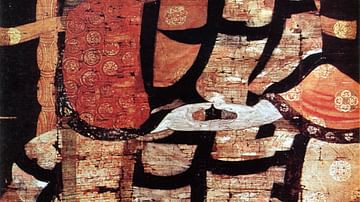
Definition
Saichō
Saichō, also known as Dengyo Daishi (767-822 CE), was a monk and scholar who founded the Buddhist Tendai Sect in Japan. Based on the teachings of the Chinese Tiantai Sect, Saichō's simplified and inclusive version of Buddhism grew in popularity...